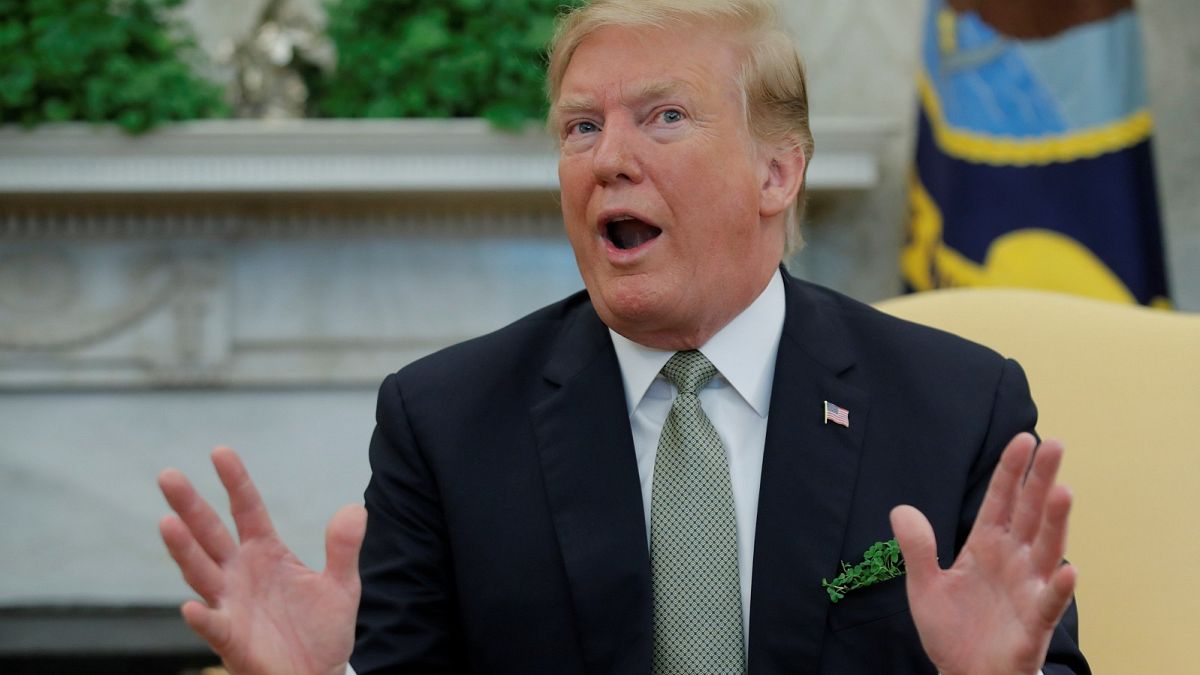The U.S. president must be subject to the same laws as every other American citizen.
The question of whether a president can be indicted has sparked increasingly heated debate over special counsel Robert Mueller’s investigation into Russian interference in the 2016 presidential election. Reading various legal scholars and pundits, one might conclude the answer is murky. The logic that underpins the Constitution, however, keeps the door wide open for indictment. And we must keep talking about why.
Get-out-of-jail free cards exist in Atlantic City real estate board games, not the U.S. Constitution. Fortunately for Americans, we know what kind of country we live in: one with equality before the law, not immunity for political leaders. The Constitution contains no provision that would preclude the criminal indictment of the president or any other government official. The Fifth Amendment names the only exceptions — and the president is not one.
Respected constitutional scholars, such as Philip Bobbitt, argue that impeachment is effectively the exclusive path to prosecute a president. It is not. Impeachment by Congress is one way to remove a president from office. Indictment and prosecution for a federal felony provide a separate avenue that need not automatically include removal — just as impeachment need not involve violation of a criminal statute.
Indeed, numerous federal officials have held office despite indictment and even conviction. In the Founding Fathers’ generation, for example, Matthew Lyon was re-elected to Congress in 1798 while in prison for criticizing President John Adams, a violation of the Alien and Sedition Acts.
Critics of the idea of indicting a president often point to a 1973 Justice Department memo that found no constitutional bar to indictment but still concluded that, for pragmatic reasons, it would be a bad idea to prosecute a president in federal courts. In particular, it pointed to the unique duties of the modern presidency, the undue burdens it would place on the chief executive’s time and attention and the reputational damage it would do.
Supreme Court Justice John Paul Stevens was not persuaded, however, when he ruled in the 1997 Clinton v. Jones decision that a president has no immunity from a federal civil suit.
The 25th amendment provides) for a temporary or permanent timeout for the president if he is, for example, incapacitated while preoccupied with defending against federal felony charges. The president himself may decide if he is “unable to discharge the powers and duties of his office.” If a president were so tied up with legal matters as to require resignation, the Constitution has a provision for succession, starting with the vice president.
The presidency does have unique powers, but no individual president is irreplaceable and Cabinet departments conduct most of their day-to-day work with little reliance on the president’s personal attention. Prosecution of a president does not mean the executive branch grinds to a halt.
In fact, everything we know about the Constitution and the founding of our republic in rebellion from the British monarchy argues the other way. Emphatically so.
The drafters of the Constitution knew very well the evils of legal impunity and wanted a different system of governance — “a government of laws not men,” as the Massachusetts Constitution of 1780 proclaimed. The U.S. president is not a king, and equality before the law was the new republic’s founding and abiding first principle.
Three philosophical perspectives help explain this:
First, common sense. Constitutional law is a complex and subtle field, but nonetheless governed by logic. If a president were to shoot somebody in front of witnesses without cause, Harvard’s Professor Lawrence Tribe has correctly argued, most everyone agrees that there would be no immunity.
This is not a trivial argument. It is often said that hard cases make bad law, meaning that it is risky to infer a rule based on a quirky case. But the converse is also true: Any general rule should be able to take care of simple cases. The indictment of a president for a felony is a simple case that is perfectly consistent with the constitutional order.
Just as Congress can hear an impeachment case against the president under certain circumstances (“treason, bribery or other high crimes and misdemeanors”), so, too, the independent judiciary should be able to hear a felony case against a president based on a grand jury indictment.
Second, moral hazard. The ability to indict a president is an important protection against the essentially political nature of an impeachment in the hands of Congress. But presidential immunity from ordinary prosecution could become a license to commit crimes with virtual impunity when a president’s party controls one House of Congress — or even just 34 seats in the Senate.
The 1973 Justice Department memo gives rise to another form of moral hazard: Presidential candidates have increased incentive to cheat in the election to attain the one office where, if they win, they cannot suffer the consequences of their misdeeds. As Supreme Court Justice Robert Jackson famously wrote, “the Constitution is not a suicide pact.” His point was that the document must not be interpreted in a way that does violence to America’s core values.
A third philosophical argument relates to the basic principle of international law established at the Nuremberg Trials (where Jackson had been a prosecutor): Orders from superiors are never an excuse for criminal conduct. Why? Because the law applies to everyone including the commanding officers, all the way up to the top, where the buck stops.
Indeed, the 1973 memo identifies the president as the “symbolic head of the nation.” The presidency sets the example for our country. Precisely for this reason, the president must be subject to the same laws as every other American citizen.
Mark Medish is a lawyer. He served at the White House and the Treasury Department in President Bill Clinton's administration. He is president of The Messina Group, a strategic and political consultancy.
This article was first published on NBC News' Think.


